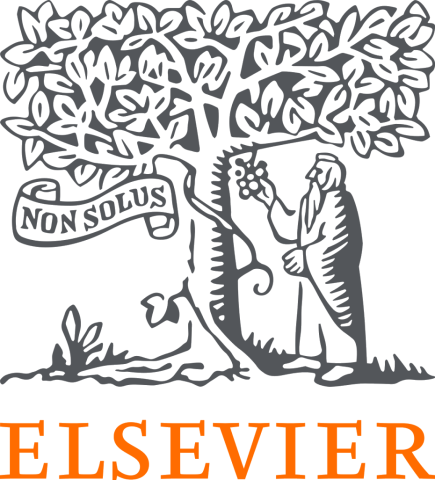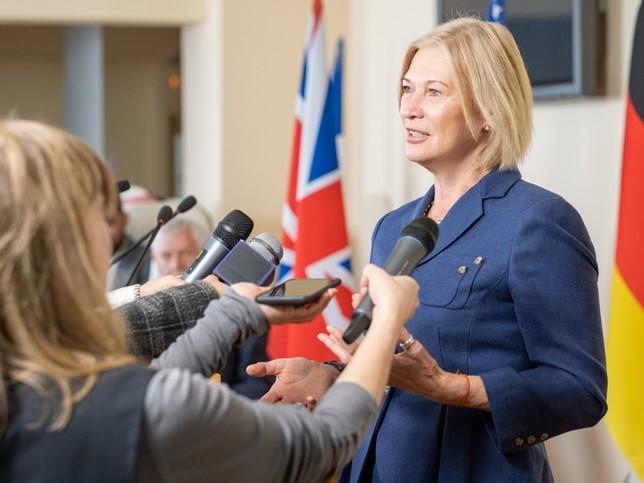
Driving change through knowledge: how to increase policy impact
Academic research is invaluable in informing governments and leaders so they can make decisions that affect us all. Here, Yaryna Basystyuk offers advice on how to make your research count in the policy world
Research management
Sponsored by

Elsevier helps researchers and healthcare professionals advance science and improve health outcomes for the benefit of society.
You may also like
Popular resources
Getting academic research in front of key influencers – and using it to inform governmental decisions – is what we strive for. After all, what’s the point in quality research sitting in a lab or on a laptop?
But in the UK, where policy officials often rely on familiar academics and can fail to draw on expert opinion from a range of experiences, how can new voices make themselves heard? How can researchers bring a diverse range of gender, ethnicity and geographic location to policymakers’ attention?
The government and parliament need tools that make finding the right experts easy. The Universities Policy Engagement Network (UPEN) bridges the gap between academics and policymakers.
How can we diversify the expert voices in the policymaking space?
There is plenty that academics and institutions can do to add to UPEN’s work to diversify the voices that policymakers hear.
- Academics can respond to published-evidence requests from government and parliament (for example, via governmental consultations, parliamentary inquiries and areas of research interest). The last offer a unique opportunity to engage with government, aimed at developing how research can address policy problems and putting in place more systemic mechanisms to support relationship building.
- Networking is also well worth investing in. It can help identify the right people and organisations to talk to and offers an excellent opportunity for learning about ongoing or emerging policy needs. Researchers can attend events, run seminars (many government departments invite academics for lunchtime workshops), and submit written responses to parliamentary inquiries and the government’s areas of research interest. X (formerly Twitter) and LinkedIn can also be used to develop networks. X, in particular, provides an insight into policy conversations and an opportunity to interact with people who share similar interests.
UPEN also provides regular opportunities to network, such as the Ukraine’s Recovery: Rebuilding with Research conference, organised by UPEN and the Royal Society. The conference brought together policymakers and researchers from UK and Ukrainian universities to explore how research can help tackle challenges facing policymakers – from rebuilding Ukraine’s economy to addressing the complex needs related to health and well-being, re-imagining regional security and partnerships and planning for a green recovery. - Lastly, taking up a secondment with national government, devolved administration, local government or parliament is a fantastic way for researchers to understand more about the policy world and have an impact. This can be done through the UKRI Policy Fellowship programme or by engaging directly with a relevant public policy team at your university. Another opportunity is the Royal Society pairing scheme, which pairs research scientists with UK parliamentarians and civil servants.
How can policymakers reach out to universities?
Many academic colleagues are passionate about seeing their research used and are willing to put in the time to achieve impact, but they need ideas on how and where to engage. UPEN can support them, including through training and regular knowledge-exchange opportunities.
- Five steps for engaging policymakers with research
- Writing and presenting reports for government: five dos and five don’ts
- What does ‘strengthen research capacity’ mean in practice?
UPEN has established itself as a partner that makes it easier for policymakers to ask questions of universities.
The network now needs to find effective ways to develop stronger relationships with policymakers and make it simpler for them to draw on a more diverse field of researchers.
One way could be by working closely with the UK government chief scientific adviser’s office and a network of chief scientific advisers (CSAs) across departments. CSAs can play a vital brokering role in government and UPEN can support with that, as the network offers a unique knowledge of both policy and research environments.
The network is also looking to engage with a wider set of partners, such as NGOs and think tanks, and academics working on the study of policymaking.
How can researchers leverage the network?
UPEN was founded in 2018 to build a community of universities committed to increasing the impact of research on public policy. The network of 120 institutions acts as a contact point for policymakers to ask questions of experts at member universities.
Researchers keen to engage with policy can:
- Subscribe to UPEN weekly updates, featuring opportunities to engage with the UK government, parliament, devolved administrations and beyond
- Respond to evidence needs from policymakers
- Participate in UPEN-organised knowledge exchange meetings with key policymaking bodies, including the UPEN annual conference
- Contribute to UPEN blogs and share thoughts and reflections on engagement.
Yaryna Basystyuk is policy engagement manager in the Public Policy Southampton team at the University of Southampton. She is also chair of the international subcommittee of the Universities Policy Engagement Network (UPEN).
If you would like advice and insight from academics and university staff delivered direct to your inbox each week, sign up for the Campus newsletter.
Research management
Sponsored by
Elsevier helps researchers and healthcare professionals advance science and improve health outcomes for the benefit of society.
Additional Links
Researchers at member universities – or those at universities who are interested in joining – can contact UPEN at secretariat@upen.ac.uk.
Research management
Sponsored by




